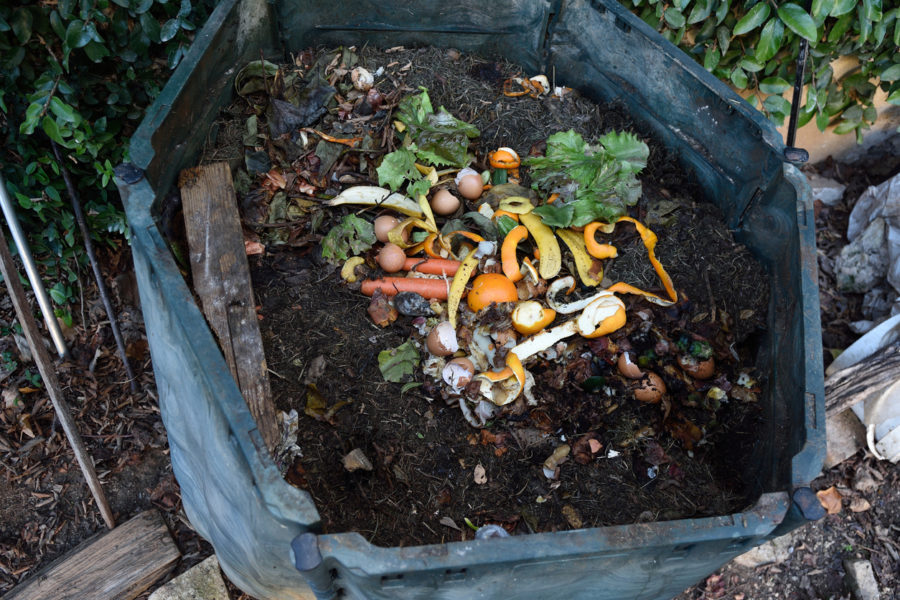Composting
inside of a composting container
A long time ago, people in the world discovered how to do compost and its benefits on our planet.
Composting needs some essential ingredients. It is necessary to include organic waste, soil, water and air in the mixture. First, the microorganisms that are in the soil eat the organic waste. Second, the microorganisms destroy some other materials with an aerobic respiration. After, the mixture gives off carbon dioxide and heats up to 38 to 66 degrees Celsius. Then, the compost is done.
This organic matter reduces the amount of Greenhouse gases in the atmosphere. It’s also a natural fertilizer, so you can use it on your ground. Plus, compost makes the soil healthy, it gives microbes, nutrients and improves the growth of the plants. The fertilizer controls erosion and decreases the volume of waste in dumpsites.
A lot of things can be added in the compost. Here are a few examples: leaves, vegetable and fruit peel, bread, coffee grounds and filters, tea leaves and tea bags, any non-glossy paper and cardboard, nut shells, egg cartons and eggshells, toilet rolls and grass clipping.
Some cities in the world have more developed installations for compost than other cities. In fact, San Francisco, Seattle, Toronto and Portland own these installations. There are also countries in Europe like France, Spain and Germany that have this privilege. Do you think that composting should be an obligation to the province of Quebec?






